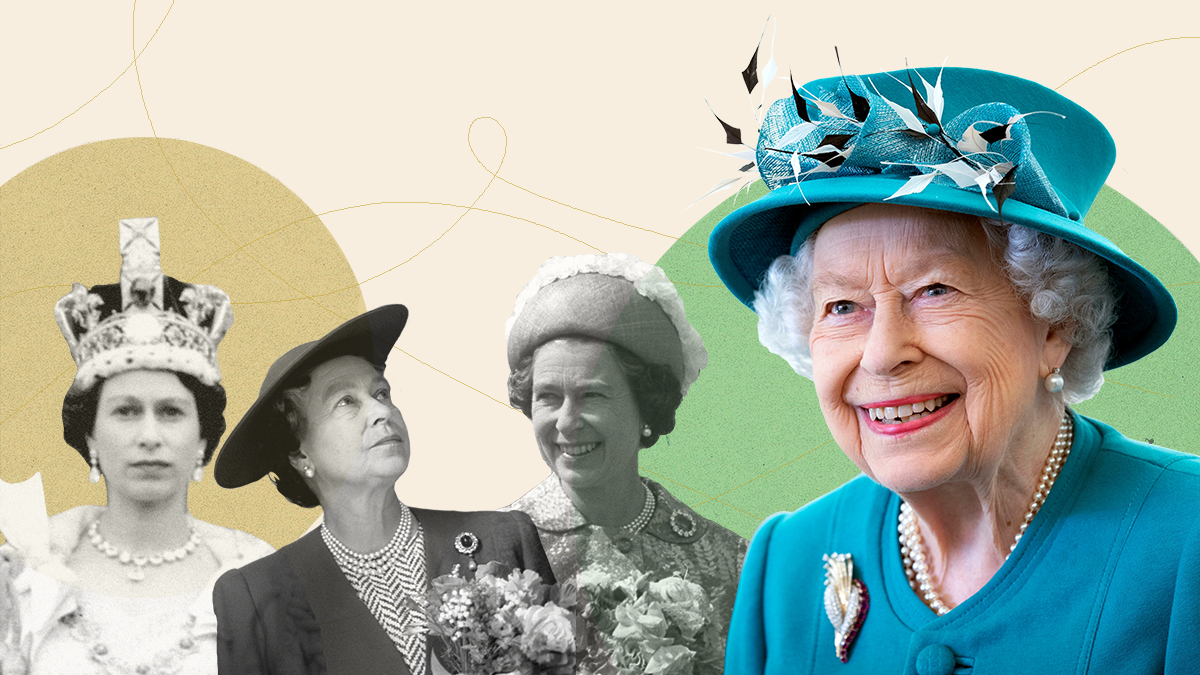There’s been an outpouring of grief across the UK – and the globe – after Queen Elizabeth II died Thursday at her estate in the Scottish Highlands at the age of 96.
BBC news presenters donned black suits even before her death was announced, while dignitaries and politicians prepared by purchasing black ties and armbands.
The Queen, who recently celebrated her Platinum Jubilee marking 70 years on the throne, was last seen in public earlier this week when she met with Britain's new prime minister, Liz Truss, at Balmoral Castle, her summer residence.
Elizabeth Windsor was never supposed to be Queen. Her uncle, Edward VIII, ascended to the throne in 1936 but soon abdicated so he could marry a divorced American socialite, going against the government and the Church of England to do so. Elizabeth’s father, George VI, replaced his older brother, making a young Elizabeth Windsor the new heir apparent.
When Elizabeth assumed the throne in 1952 at age 25, the world was a very different place. President Harry Truman occupied the White House and dictator Joseph Stalin was still at the helm of the Soviet Union. At home, Winston Churchill was serving his second stint at No. 10 Downing Street, and it was with this statesman that Queen Elizabeth II established a tradition of weekly audiences with the British prime minister. She worked with a total of 15 prime ministers during her 70-year reign.
For better or worse, the monarch’s role in Britain has always been strictly apolitical, and Queen Elizabeth II was long lauded for remaining above the fray of petty party politics and for not inserting herself in messy global affairs. Nonetheless, she saw a lot during her seven decades at the helm, and her official royal visits around the globe were laden with symbolism.
History in the making. During her first overseas visit as queen in 1953, Elizabeth II embarked on a months-long Commonwealth tour accompanied by her husband, Prince Philip, Duke of Edinburgh. She made stops in Jamaica and Fiji – which did not gain independence from the UK until 1962 and 1970, respectively – and visited Bermuda, Tonga, Australia, New Zealand, and Gibraltar, being met by adoring spectators along the way. For some royal detractors, however, these visits, laced with pomp and circumstance, were emblematic of the way the Royal Family long benefited from British colonialism.
In the mid-1960s, Queen Elizabeth, by then a mother of four, visited West Germany, marking the first visit of a British monarch to Germany in half a century. Coinciding with the 20th anniversary of the end of World War II, her visit became a symbol of European reconciliation after the two countries found themselves on opposite sides of a bloody war that forever changed the continent.
Indeed, the former monarch made a series of other historic trips during her reign. In 1986, Queen Elizabeth became the first British monarch to visit mainland China, where she expressed hopes for a resolution over Hong Kong’s status (two years earlier, British Prime Minister Margaret Thatcher agreed to return sovereignty over Hong Kong to China in 1997) and for stronger trade ties between London and Beijing. Her trip came during interesting times for China, then led by Deng Xiaoping. Student-led protests against corruption that year lit the match that would culminate in the 1989 Tiananmen Square massacre.
In 2011, Queen Elizabeth became the first monarch to visit the Republic of Ireland (King George V visited in 1911 when the country was still part of the UK). This came just over a decade after the Good Friday Agreement was signed, with the trauma of the Troubles still rife. Her visit was hailed as a watershed moment, though relations remain fraught to this day, as demonstrated by messy post-Brexit negotiations.
A tumultuous present. The Queen’s oldest child, Charles, has become the new monarch. It's unclear when the official coronation ceremony, a religious pageant performed by the most senior cleric in the Church of England, will take place for King Charles III.
A lavish ceremony at this time would perhaps reflect poorly on the new king, who does not hold the same treasured place in the collective British psyche as his mostly beloved mother. (The Queen’s coronation ceremony cost the equivalent of 46 million pounds. Charles reportedly wants a more laid-back affair, but it would still be costly.)
The UK is mired in its worst cost-of-living crisis in decades, in large part because of soaring energy and rent prices. The Bank of England recently warned that the UK will likely face its longest recession since the global financial crisis in 2007, and inflation is slated to hit a staggering 18.6% early next year. Sky-high energy costs and post-Brexit shortages have fueled inflation rates that top those in the EU and the US, with the British poor and middle class being hit particularly hard.
The national mood in Britain is extremely grim. The death of a longtime national figurehead is yet another blow for a crisis-ridden country.
More For You
At the 62nd Munich Security Conference in Munich, GZERO’s Tony Maciulis spoke with Benedikt Franke, Vice Chairman and CEO of the Munich Security Conference, to discuss whether the post-1945 global order is under strain or already unraveling.
Most Popular
Zelensky agrees: elections matter #PUPPETREGIME
As more small businesses move sales, payments, and customer relationships online, they unlock new opportunities, but they also become easier targets for cyber-criminals and other threat actors.
When Japanese Prime Minister Sanae Takaichi called snap elections last month, it was a big gamble. Holding a winter election just four months into her tenure with no real policy record to run on?
